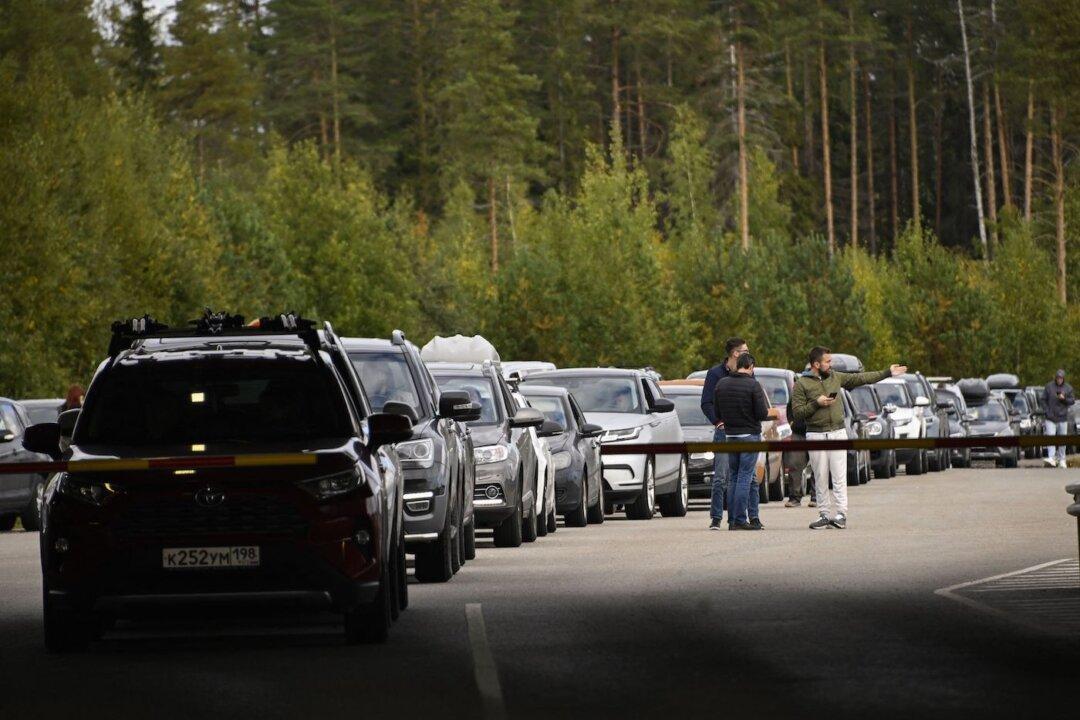Men have reportedly been fleeing Russia in droves after the nation’s leader Vladimir Putin announced a partial mobilization of the army on Sept. 21 amid Moscow’s ongoing war with Ukraine.
Putin’s announcement, the first of its kind since World War II, came less than a day after pro-Russian leaders in four Ukrainian provinces: Donetsk, Luhansk, Kherson, and Zaporizhzhia announced plans to hold separate referendums on whether or not to join Russia.




